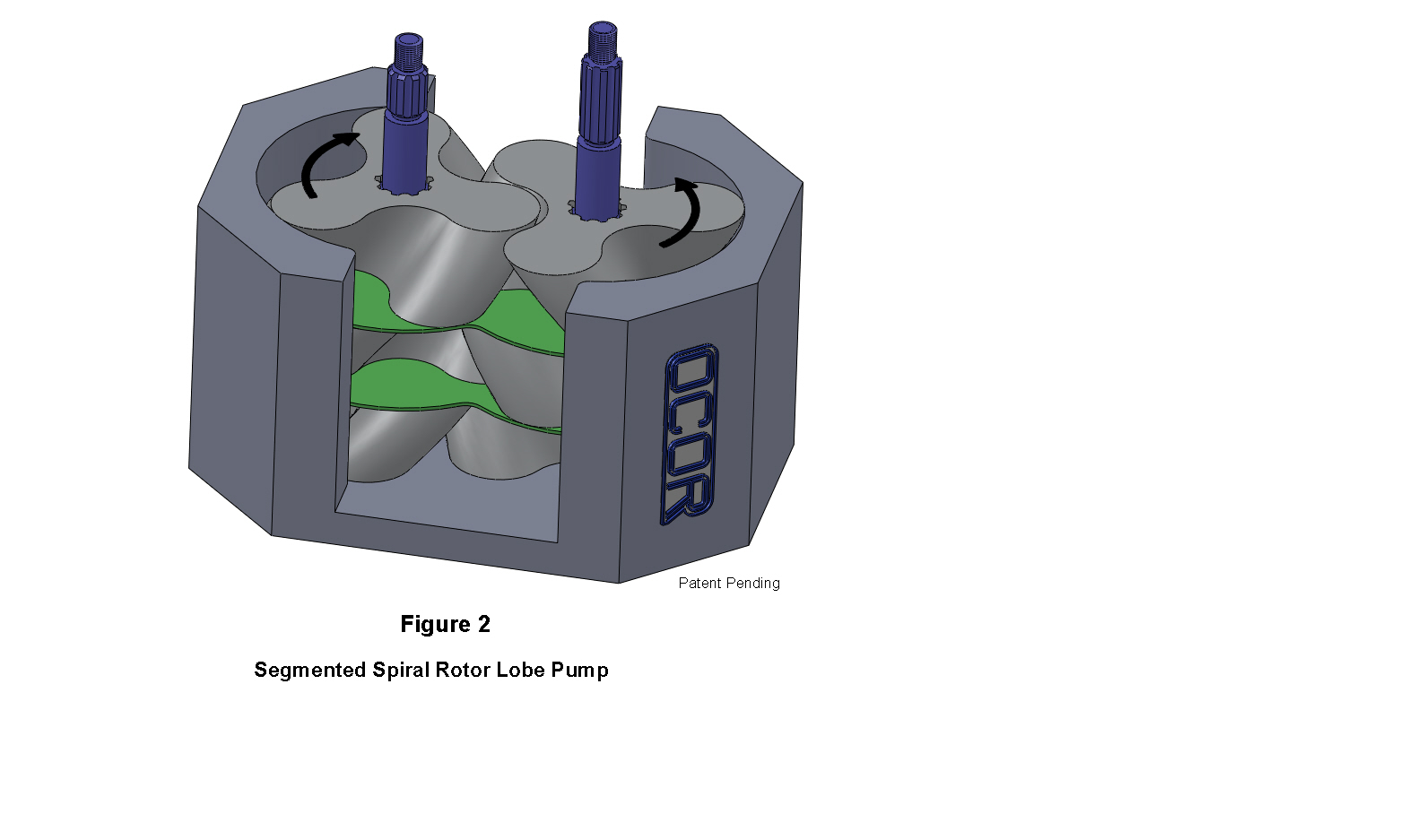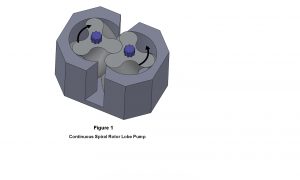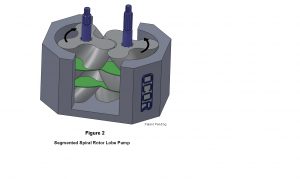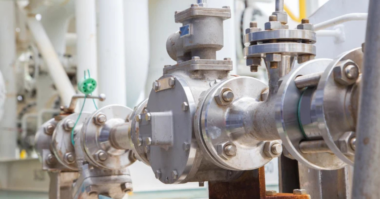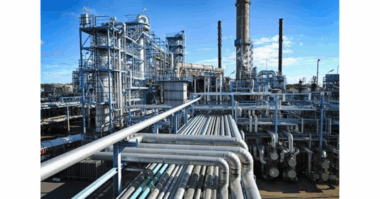Today’s conventional lobe pumps deliver high pressure but typically cannot supply high volume because of the rotors’ propensity to cavitate at high RPM. But, what if you could remove this limitation and produce high volume flow? What if it could also offer variable speed and fully reversibility? Those are exactly the questioned asked by OCOR Corporation in San Diego, California, that set the company on a course to design a pump that can deliver both high volume and high pressure in a single stage.
This month, OCOR is releasing design details of a Multiple Segment Lobe Pump, a fully reversible positive displacement pump, that delivers complete versatility including high volume, non-pulsating continuous flow over a wide speed range.
The pump is designed to transport all types of media such as liquids, of both low and high viscosity, air and gases, as well as semi-solids such as mud or slurries of combined materials.
To explain the operation of the new design, let’s first consider the geometry of a hypothetical ‘conventional’ three lobe pump. In order for that pump to have continuous, non-pulsating flow, each side-by-side set of rotors must have lobes that are machined with a helical twist over their full height. The sweep of the helical shape must be equal to 120 degrees, or one third of the rotor diameter and remaine isolated from the inlet and discharge openings over the media transport angle of an additional 120 degrees.
The problem with the design is that it simply does not leave enough physical space in the containment housing for workable inlet and discharge openings. A simple sketch of the non-functional geometry is shown in Fig. 1.
What the OCOR Multiple Segment Lobe Pump does is take that same helical rotor design and splits it into separate identical rotors, sequentially arranged on each side-by-side shafts. In the case of three rotor segments, the rotors are assembled onto the shafts with a series of separator plates (two required) that essentially creates three separate sequential pumps. The two media isolation regions in the containment housing now, only need to seal an arch between the inlet and discharge ports of 160 degrees compared to 240 degrees if a continuous rotor were to be used. This pump geometry is illustrated in Figure 2.
According to Brian O’Connor, the pump’s inventor, “By simply splitting the rotors into individual segments, we’ve been able to completely eliminate the pumps’ pulsation problem. Eliminating this barrier will now allow the development of high volume, variable speed, fully reversible pumps that offer new flexibility for expanded positive displacement pump applications. With this design, rotordynamic pump issues such as reverse flow, surge line and efficiency islands of operation are no longer an issue.”
This past year, OCOR manufactured a four lobe rotor prototype in order to test the pump’s viability. Over a series of controlled tests, at shaft speeds from 300 RPM to 1120 RPM, the pump demonstrated over 81% displacement efficiency in the transport of both liquid and gas material. A demonstration of the prototype unit can be viewed at: https://www.youtube.com/watch?v=LHx9bcFmN8c .
The OCOR Multiple Segment Lobe Pump was recently recognized in the top 100 new product designs in the NASA Tech Brief 2013 “Create the Future” design contest. The contest recognizes engineering innovation from engineers, entrepreneurs and students worldwide. For more information on the Create the Future Design Contest, visit http://contest.techbriefs.com/ .
About OCOR:
OCOR Corporation, located in San Diego, California, is owned and operated by Brian O’Connor a 54 year veteran in mechanical engineering design. Prior to founding OCOR Corporation, Brian held design positions in the Advanced Design Section at Rocketdyne, now a division of Aerojet General, Homer Wood and Associates (Homer J. Wood, Dr Eric Balje et al) and Biphase Energy Systems, a division of TransAmerica DeLaval Turbine Company. He is also a Life Member of the ASME. For more information about the OCOR Multiple Segment Lobe Pump contact Brian at ocor@cox.net or 619-733-0844.

